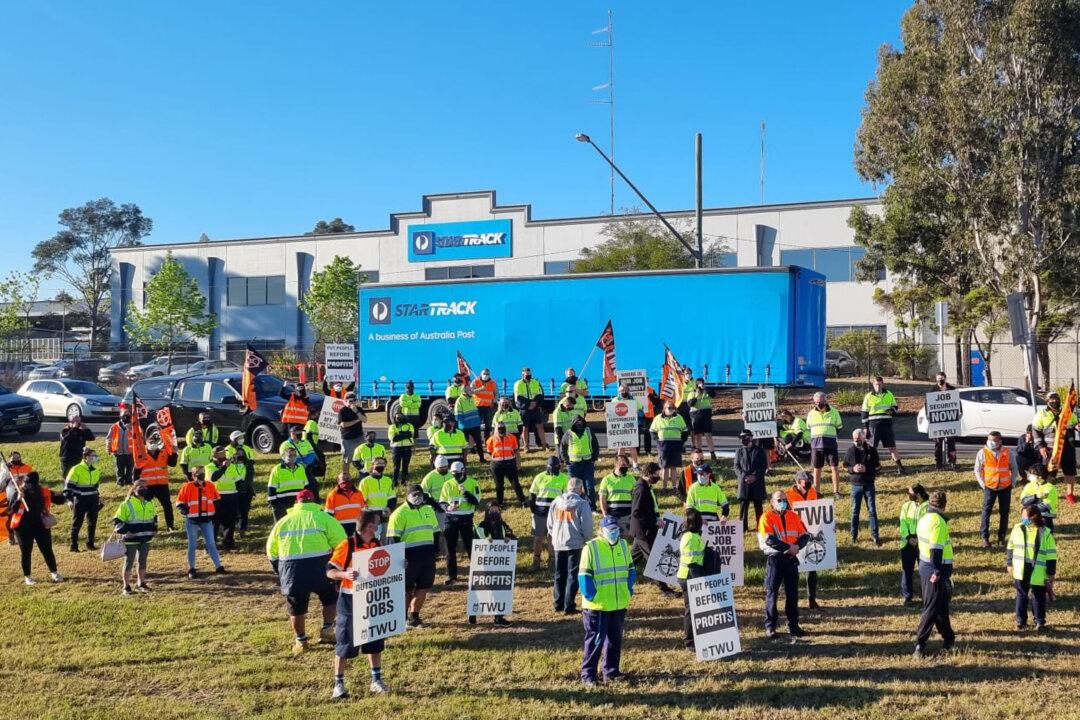Thousands of delivery workers at Australian courier company StarTrack have walked off the job for 24 hours from midnight Sept. 23 after negotiations over job security and pay broke down.
Around 2,000 StarTrack employees are striking across the country after the Fair Work Commission approved the industrial action while rejecting StarTrack’s claim that it would jeopardise lives and health by delaying vaccine deliveries.





